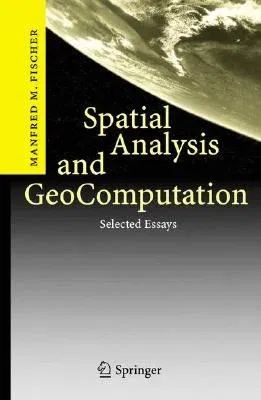The dissemination of digital spatial databases, coupled with the ever
wider use of GISystems, is stimulating increasing interest in spatial
analysis from outside the spatial sciences. The recognition of the
spatial dimension in social science research sometimes yields different
and more meaningful results than analysis which ignores it. The emphasis
in this book is on spatial analysis from the perspective of Geo-
Computation. GeoComputation is a new computational-intensive paradigm
that increasingly illustrates its potential to radically change current
research practice in spatial analysis. This volume contains selected
essays of Manfred M. Fischer. By drawing together a number of related
papers, previously scattered in space and time, the collection aims to
provide important insights into novel styles to perform spatial
modelling and analysis tasks. Based on the latest developments in esti-
tion theory, model selection and testing this volume develops neural
networks into advanced tools for non-parametric modelling and spatial
interaction modelling. Spatial Analysis and GeoComputation is
essentially a multi-product und- taking, in the sense that most of the
contributions are multi-authored publications. All these co-authors
deserve the full credit for this volume, as they have been the
scientific source of the research contributions included in the present
volume. This book is being published simultaneously with Innovation,
Networks and Knowledge Spillovers: Selected Essays. I would also like to
thank Gudrun Decker, Thomas Seyffertitz and Petra Staufer- Steinnocher
for their capable assistance in co-ordinating the various stages of the
preparation of the book.

